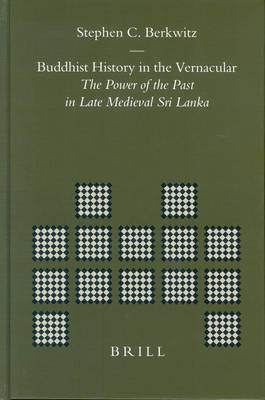Brill's Indological Library
1 primary work
Book 23
This is a careful study about the power attributed to historical narratives in early medieval Sri Lanka. On the basis of Sinhala histories of the Buddha and his relics this work sheds new light on historiography at work in a vernacular setting. Arguing that historical texts were both ethically and socially constructive, the author demonstrates that narrative representations of the past served the purpose to transform writers, readers, and listeners of history into virtuous persons, and therewith to generate moral communities.
Focusing on the thirteenth-century Sinhala Thupavamsa, this book problematizes modern interpretations of Buddhist histories, compares the production of Pali and Sinhala texts, and examines how historical works were directed towards religious ends.
A significant contribution to scholarship in Buddhist Studies, Comparative Literature, and Historical Criticism.
Focusing on the thirteenth-century Sinhala Thupavamsa, this book problematizes modern interpretations of Buddhist histories, compares the production of Pali and Sinhala texts, and examines how historical works were directed towards religious ends.
A significant contribution to scholarship in Buddhist Studies, Comparative Literature, and Historical Criticism.
